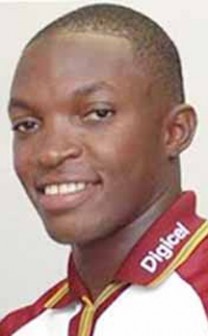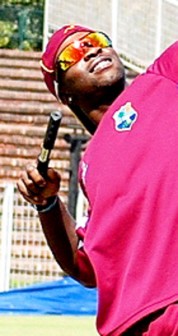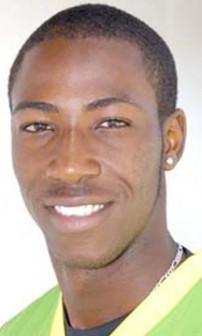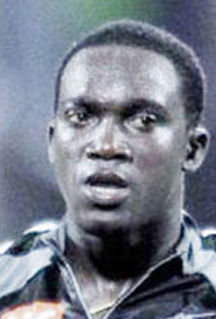Asks Colin Benjamin
As the talented but non-producing West Indies batting again stumbled disappointingly to put up a substantial total in the just concluded second test against India, it seems likely that the
team would most certainly have lost the second test if rain hadn’t washed out the third day’s play.
The form of the bowlers has been commendable and Fidel Edward’s five wicket haul has continued the trend of improvement shown this season by his teammates Ravi Rampaul and Devendra Bishoo and the much maligned Darren Sammy.
It meant that the four-man bowling attack had again managed to restrict the opposition for paltry or gettable totals only to see the batsmen falter. Before the start of the current test series against India, it seemed an extremely risky selection to pick Edwards on the opening morning of the first test, given that coach Ottis Gibson and the other selectors did not see it fit to select him during the one-day international series against India to aid him with some game time given that he had not tasted the intensity of International cricket in two years.
A short domestic season for Barbados; a warm-up game against a Select Team before the first test against Pakistan and club cricket in Barbados certainly didn’t seem like proper preparation for a bowler going into a test series against the number one test team in the world (according to the faulty ICC ranking system).
But Edwards’s performances in the series to date culminating with his five wicket haul on the final morning of the second test were extremely pleasing.


Whether one wishes to credit Edwards performances in this series to smart selection by Gibson and the rest of the selectors despite critics concerns or just a simple case of Edwards himself just rising to the occasion on a return to the realm of international cricket is a matter for conjecture and could be debated at the bars amongst persons of various ideological backgrounds and cricket knowledge and understanding, forever.
But the big picture of Edwards’s performances is what it means for the West Indies future – and that is very encouraging.
Many regional fans worried during his two-year injury exodus whether we would see him playing again at the highest level especially as he was just beginning to peak as a test bowler when that injury occurred in 2009 as shown by performances in South Africa 2008/2009, at home versus Sri Lanka 2009 and away to England and New Zealand 2009.


So while the talented batting line-up continues to struggle, the bowling attack has been performing to potential at home all season.
With the likes of Jerome Taylor, Kemar Roach and Andre Russell ready and waiting in the wings, visiting teams can be assured of no respite except for the fact that the above named players are overlooked due to the simple fact that Darren Sammy is keeping them out because of his default position as captain.
It is a decision the WICB seems reluctant to address. They can continue to overlook Chris Gayle, drop vice captain Brendan Nash and former captain Ramnaresh Sarwan, the latter two on the grounds of poor form but Sammy’s position seems untouchable.
Of course some will argue that Sammy indeed has been bowling commendably this season for a bowler with limited ability. But the question
to those Sammy defenders is if Sammy can bowl so well in his defensive mode, imagine what obviously more attacking bowlers such as Taylor, Roach and Russell could do if they were to be given the opportunity.
The potential for the West Indies to form a lethal pace bowling attack of Taylor, Roach. Rampaul, Edwards, Russell along with a spinner in Bishoo is right under the selectors’ noses.
The argument is that Gayle does not have the best interest of West Indies cricket at heart but do the selectors when they continue to select players who do not merit selection?
Caricom has indicated that they intend to step in.
One would hope that they do not confine their intervention to only the Gayle issue but also other pressing issues in West Indies cricket that cry out for attention notwithstanding the ICC’s recent position on government interference in the sport.
The situation in the West Indies is at a tipping point and drastic measures need to be taken to resolve those burning issues.





